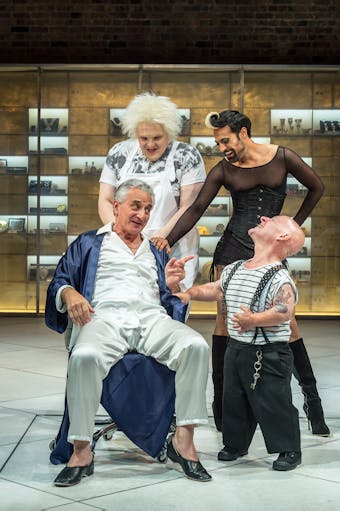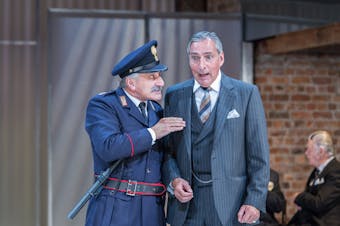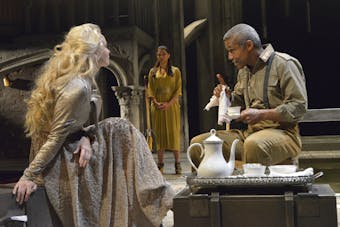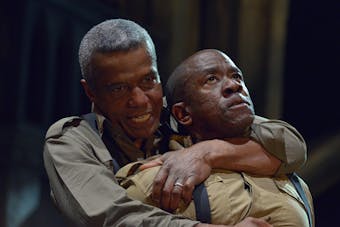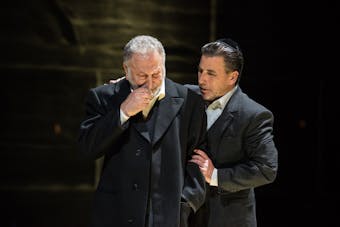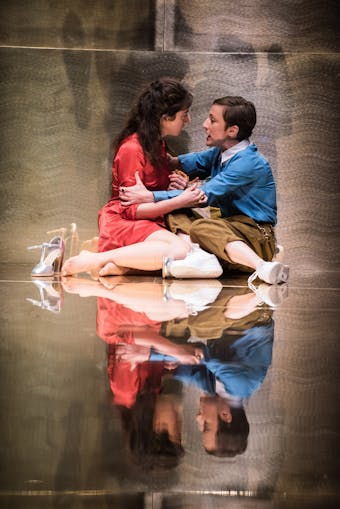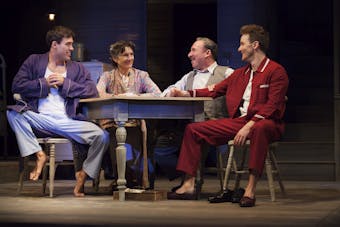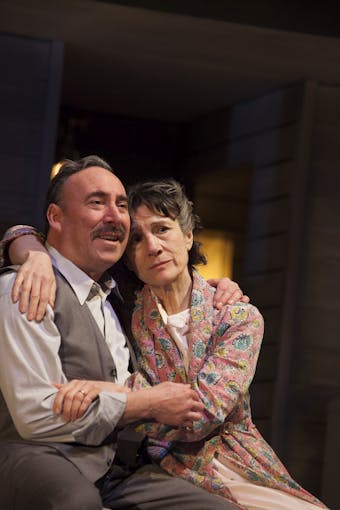Volpone
Ben Jonson's Volpone is at the RSC and director Trevor Nunn is keen to prove its relevance. But greed, scams and schemes will probably always be relevant, and Nunn might have done better to focus his efforts on the nuances of Jonson's rich satire.
Volpone the fox is a greedy and dramatic man who will go to great lengths to obtain riches from his carrion acquaintances. With the help of his reserved servant, Mosca the parasite, Volpone feigns illness. Lying comically disguised on his fake deathbed, Volpone is visited by Voltore (the vulture), Corbaccio (the raven), and Corvino (the crow), three men of social standing who bring Volpone gifts and hold the belief (placed in their heads by Mosca) that they will be the sole inheritor of Volpone’s fortune upon his death.
Orion Lee was certainly the reserved Mosca, if not so much the sneaky slimy parasite. While occasionally comic, his stiff actions mostly looked over-rehearsed. As much as I was routing for the young actors in this production - many of whom, including Lee, are performing in their RSC debut season - it was undeniably Henry Goodman as Volpone carrying the entire show. He sang and shouted in an offensive Italian accent; he drooled and shook, beaming wickedly at the audience as if to let us in to his cruel scheme; every molecule of his Volpone was charged with energy and he had the audience in stitches the whole way through. Having one star player can be good, but having a strong team will win the match.
The flashy set suited the glitz and glam of the storyline and even added to the comedy (Volpone’s bed appeared with the click of a button). The attempt to modernise this production wasn’t as desperate as other plays that I have seen this summer. Yes, the comparisons to modern criminals, the selfies, the emphasis on words such as followers, are all pushed directly into your face, but so are Jonson’s text and characters. It’s an in-your-face play and the crudeness of this interpretation fits this nicely.
I actually think they should have been pushing more. For example, there are two women in this play: the crow’s wife, Celia; and Lady Would-Be, the parrot. Celia is a tragic character hardly worth mentioning and Rhiannon Handy didn’t do much to change this. Annette McLaughlin as Lady Would-Be was hilarious and outrageous, but it’s not revolutionary anymore to sign-post your ‘strong female character’ by putting her in dangerously high heels and even higher blonde curls. No one’s shocked to see Steven Pacey (Sir Politic Would-Be) come on in a dress (a change from the original script), or to see Colin Ryan (Peregrine) with dreadlocks. If Jonson’s audience could handle a dwarf, a eunuch, a hermaphrodite, and such a clear satirising of the trials of the gunpowder plot so soon after the actual event, then we really should be able to push past safe stereotypes, however ‘modern’ they may seem.
Trevor Nunn’s Volpone is a taste of Jonson’s brilliant and layered comedy, but not a whole bite.
The RSC's production of Volpone runs until 12th September at the Swan Theatre in Stratford-upon-Avon. Tickets available at
http://www.rsc.org.uk/whats-on/volpone/




